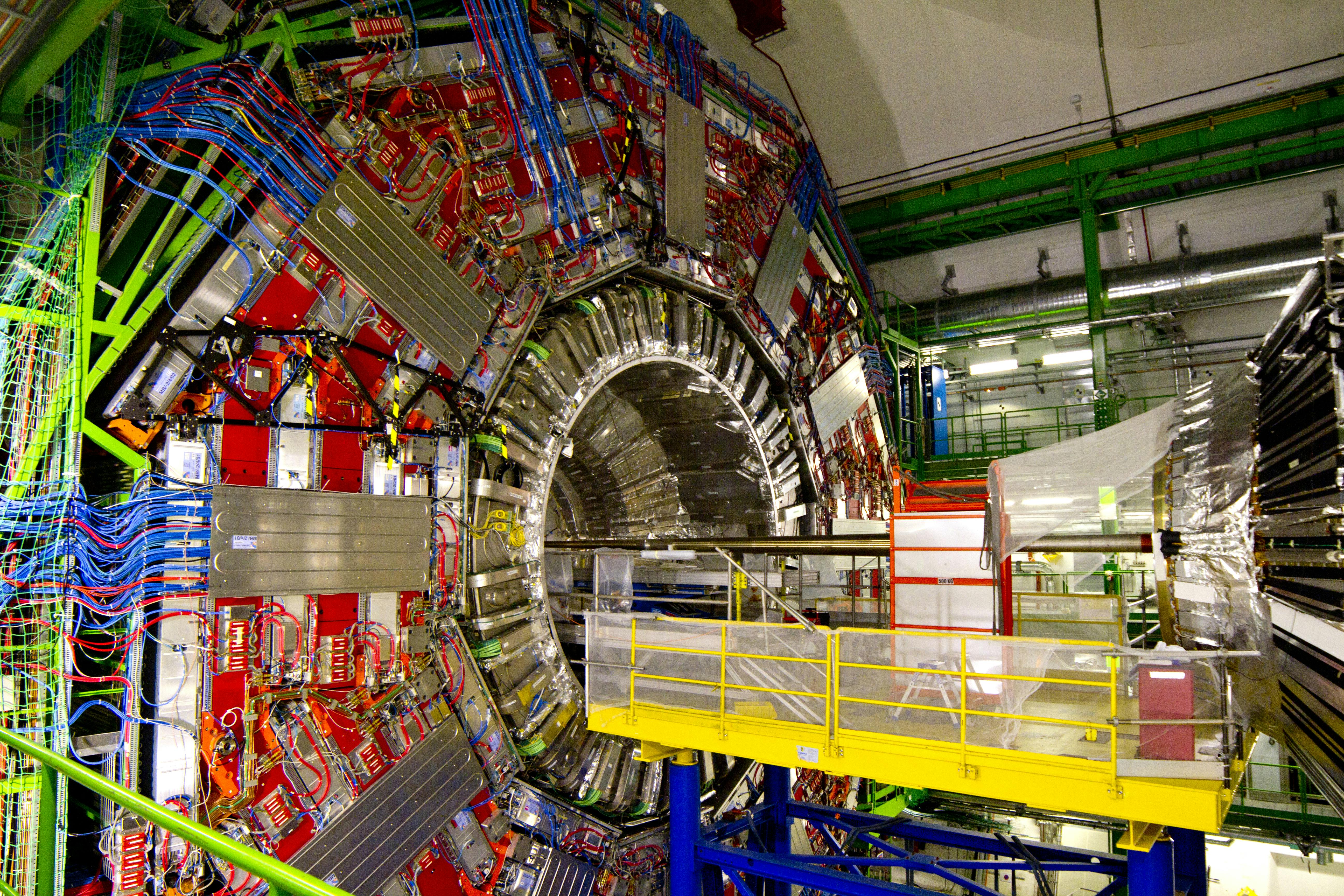Ready to turn insight into action?
We help organisations transform ideas into measurable results with strategies that work in the real world. Let’s talk about how we can solve your most complex supply chain challenges.

Nuclear Power Supply Chains: Challenges & Opportunities in Australia
The global energy transition has reignited interest in nuclear power as a low-carbon, firming option for electricity grids. For Australia — a country rich in uranium but with no commercial nuclear power plants — the challenge is not as simple as flipping a switch.
Building a nuclear sector requires highly complex, tightly controlled supply chains spanning mining, enrichment, fabrication, construction, operations, and decommissioning.
If Australia is to develop a viable nuclear industry — whether through large reactors, small modular reactors (SMRs), or to support AUKUS-related submarine programs — having resilient, compliant, and capable supply chains will be critical.
This article explores how nuclear supply chains function, what makes them distinctive, the challenges and risks involved, and how Trace Consultants can help Australian organisations and governments navigate this emerging space.
Understanding the Nuclear Supply Chain
A nuclear supply chain encompasses the materials, components, services, processes, and expertise that enable a nuclear facility to operate safely, reliably, and compliantly. It is typically divided into six interconnected segments:
1. Raw Materials and Fuel Supply
Uranium mining, conversion, enrichment, and fuel fabrication form the backbone of the nuclear value chain. While Australia is already a leading uranium exporter, building domestic capacity for conversion and enrichment would require new infrastructure and regulation.
2. Component Manufacturing and Fabrication
From reactor vessels and steam generators to pumps, valves, and control systems — components must meet the highest quality, safety, and traceability standards. Many are classed as “nuclear grade,” meaning even minor defects can have serious implications.
3. Construction and Integration
Building a nuclear facility involves precision assembly, heavy engineering, and strict compliance with nuclear construction standards. Every weld, inspection, and installation must be logged and verifiable.
4. Operations and Maintenance
Over decades of operation, reactors rely on a dependable chain for spare parts, inspections, diagnostics, and maintenance services. Predictive maintenance and supply continuity are key to safety and performance.
5. Decommissioning and Waste Management
At end of life, nuclear facilities must be dismantled, and radioactive materials safely stored or disposed of. This phase is as heavily regulated as the initial construction and demands specialised logistics and oversight.
6. Regulatory Compliance and Quality Assurance
Every stage must comply with international and domestic standards (such as ISO 19443), non-proliferation rules, and rigorous audit trails to ensure safety and accountability.
Why Nuclear Supply Chains Are Different
Unlike conventional infrastructure, nuclear supply chains operate under exceptional scrutiny and risk thresholds. The stakes are higher, the tolerances are tighter, and the timelines are longer. Key challenges include:
- Long lead times and limited suppliers: Only a handful of certified global manufacturers can produce critical nuclear components, creating bottlenecks.
- Certification and qualification cycles: Achieving nuclear-grade supplier status can take years of testing, documentation, and audits.
- Complex regulatory requirements: Compliance spans multiple jurisdictions, export controls, and international treaties.
- Quality assurance and traceability: Every nut and bolt must be traceable back to its origin, material batch, and quality certificate.
- Geopolitical risk: Disruptions to global logistics or sanctions can impact key materials and technologies.
- Cost and schedule blowouts: Delays due to failed inspections or non-conformance can cascade across entire projects.
- Local capability gaps: Australian suppliers may require significant uplift to meet nuclear-specific standards.
In short, a nuclear project is only as strong as its weakest supplier — and building that reliability requires long-term planning and capability development.
Australia’s Nuclear Supply Chain Landscape
Australia’s unique position — as a major uranium producer with no nuclear power plants — presents both challenges and opportunities.
1. Legal and Regulatory Barriers
Current federal and state bans on nuclear power generation would need to be reviewed before any large-scale program could proceed. Establishing a national nuclear regulator and liability framework will be essential.
2. Capability Gaps
Australia lacks a domestic manufacturing base for nuclear-grade components. Local firms would need to invest heavily in certification, training, and systems to meet global standards.
3. Limited Certification Readiness
Few Australian suppliers currently hold nuclear-specific certifications such as ISO 19443, which are required for participation in many international supply chains, including AUKUS-related opportunities.
4. Integration with Global Supply Chains
Australia will likely rely on established nuclear nations for key components and technology. Managing these cross-border interfaces will demand careful planning, contract design, and risk management.
5. Opportunity for Industrial Growth
While challenging, developing local capability could stimulate high-value manufacturing, advanced engineering, and new skilled jobs across regional Australia.
6. Strategic Alignment with Energy Transition
Nuclear energy could serve as a complement to renewables, providing firm baseload generation while supporting national decarbonisation goals.
The Rise of Small Modular Reactors (SMRs)
Small Modular Reactors — or SMRs — are redefining how nuclear supply chains might evolve. Their smaller footprint and modular design mean:
- Factory-built modules: Many components can be fabricated off-site and shipped for assembly, reducing onsite risk and labour intensity.
- Standardisation: Repeatable designs improve consistency, quality, and learning curve efficiency.
- Shorter construction times: Compared to large reactors, SMRs can reduce schedule risk and capital exposure.
- Adaptability: SMRs can be scaled or integrated into remote energy networks or industrial clusters.
However, SMRs still require nuclear-grade manufacturing, certification, and quality assurance — challenges that mirror those of traditional reactors. Supply chains must evolve alongside these technologies.
Global Lessons in Nuclear Supply Chain Management
Countries with established nuclear industries provide useful insights:
- Strategic Supply Chain Planning: Map every dependency early — from raw materials to commissioning — and embed mitigation measures for single-source risks.
- Supplier Development Programs: Invest in local industry capability uplift through training, mock audits, and quality system upgrades.
- Digital Traceability Systems: Use digital platforms to manage quality records, inspection data, and non-conformance tracking.
- Robust Governance: Establish a centralised supply chain management office responsible for oversight, audits, and regulatory interface.
- Collaborative Partnerships: Work with experienced global vendors to transfer technology and best practices.
- Continuous Training and Safety Culture: Beyond compliance, nuclear success depends on embedding a culture of precision, integrity, and learning across the workforce.
These lessons are particularly relevant for Australia as it builds readiness for future nuclear participation — whether in power generation, defence applications, or supply chain integration.
Australia’s Potential Pathway
Building a credible nuclear supply chain in Australia could follow a staged approach:
- Policy and Regulatory Reform
Establish a consistent national policy, create enabling legislation, and form a nuclear regulatory body. - Capability Mapping and Assessment
Identify which industries — defence, mining, oil and gas, heavy engineering — already have transferrable skills and infrastructure. - Supplier Uplift Programs
Develop structured programs to bring Australian firms up to international nuclear standards through training, certification, and quality system investment. - Strategic Partnerships
Partner with global suppliers for technology transfer and mentorship, creating joint ventures that accelerate capability building. - Pilot and Demonstration Projects
Begin with small-scale or modular projects to test systems, build confidence, and prove supply chain readiness. - Long-Term Industrial Strategy
Over time, Australia could position itself as a regional hub for nuclear components, services, and expertise.
How Trace Consultants Can Help
As Australia explores the role of nuclear power in its energy future, Trace Consultants can help organisations, developers, and government agencies prepare their supply chains for this complex and highly regulated sector.
1. Supply Chain Mapping and Risk Assessment
We help organisations identify and mitigate supply vulnerabilities — mapping critical suppliers, dependencies, and risks across multiple stages of the nuclear value chain.
2. Supplier Qualification and Capability Uplift
Trace supports local suppliers in meeting nuclear-grade standards through process improvement, audit readiness, ISO 19443 certification support, and training on quality assurance and traceability.
3. Procurement Strategy and Contract Design
We design procurement frameworks that balance compliance, flexibility, and commercial efficiency. Our team helps structure contracts that embed quality assurance, milestones, and risk management principles.
4. Regulatory and Governance Interface
We help clients translate technical supply chain requirements into compliant documentation and governance frameworks aligned with nuclear regulations.
5. Program Oversight and Quality Systems
Trace can establish or review quality systems, non-conformance processes, and digital traceability frameworks to ensure transparency and auditability across supplier tiers.
6. Capability Building and Training
We offer tailored training in nuclear supply chain management, quality assurance, and risk governance to help organisations embed a culture of safety and precision.
7. Integration with International Supply Chains
For organisations engaging with global vendors, Trace helps align standards, documentation, and audit systems to ensure seamless integration and compliance across jurisdictions.
8. Due Diligence and Vendor Evaluation
We conduct detailed supplier evaluations, assessing technical readiness, compliance maturity, and improvement pathways.
Through these services, Trace Consultants bridges the gap between aspiration and implementation — ensuring that Australia’s future nuclear supply chains are safe, efficient, and globally trusted.
Key Enablers for Success
For Australia to build credible nuclear supply chains, several foundations must be established:
- Long-term policy direction to give investors and industry certainty.
- Dedicated regulatory framework to govern nuclear activity and supply chain compliance.
- Government-backed supplier uplift programs to accelerate capability development.
- Partnerships with global nuclear leaders for knowledge and technology transfer.
- Digital transparency systems for traceability, compliance, and public trust.
- Ongoing education and workforce development to build the required technical depth.
- Public confidence through transparency and engagement across all stages.
If achieved, these enablers will position Australia not just as a consumer of nuclear technology, but as a contributor to the global nuclear ecosystem.
Nuclear power supply chains represent one of the most complex and demanding industrial ecosystems in the world. For Australia, they also represent an opportunity — to enhance energy security, drive industrial growth, and position the nation as a credible player in advanced, low-emissions energy systems.
The path forward will require patience, planning, and precision. But with the right regulatory reform, partnerships, and capability uplift, Australia can build a nuclear-ready supply chain ecosystem.
Trace Consultants stands ready to help organisations navigate this transition — bridging the gap between today’s industrial capabilities and tomorrow’s nuclear-grade requirements.
Ready to turn insight into action?
We help organisations transform ideas into measurable results with strategies that work in the real world. Let’s talk about how we can solve your most complex supply chain challenges.










